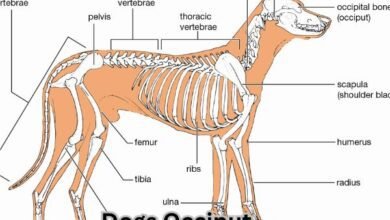
Can Dogs Eat Lemon Pepper Chicken? The smell of cooked chicken is often irresistible to dogs, and the savory, citrusy aroma of lemon pepper chicken can be especially tempting. It’s easy to see why your dog might beg for a bite when you’re enjoying this flavorful dish.
However, while the scent may draw your dog in, it’s important to be cautious. Many of the ingredients in lemon pepper chicken, like lemon, pepper, and spices, can be harmful to dogs. In this article, we’ll explore why this dish isn’t the best choice for your pet and discuss safer alternatives. Let’s find out and explore that- Can Dogs Eat Lemon Pepper Chicken?
Why Lemon Pepper Chicken Can Be Risky for Dogs
Can Dogs Eat Lemon Pepper Chicken? The short answer is no, and here’s why. Lemon pepper chicken contains several ingredients that can pose risks to your dog’s health. While the dish may be tasty for humans, it’s not suitable for your furry friend.
1. Lemon
- Citric acid: Lemon contains citric acid, which can irritate a dog’s stomach and cause digestive issues.
- Vomiting or diarrhea: If a dog eats too much lemon, it can lead to vomiting or diarrhea, making them uncomfortable.
- Photosensitivity: In some cases, too much lemon may even make a dog sensitive to sunlight.
2. Pepper
- Spicy and irritating: Black pepper, often used in lemon pepper chicken, can irritate your dog’s digestive system.
- Discomfort: Spicy foods can upset a dog’s stomach and lead to issues like bloating or discomfort.
3. Salt and Fat
- High sodium: Foods seasoned with salt can cause dehydration and high blood pressure in dogs.
- Fatty cooking methods: Using butter or oil to cook chicken can lead to obesity or even pancreatitis in dogs if consumed frequently.
4. Garlic and Onion (if included)
- Toxic ingredients: Both garlic and onion are toxic to dogs, even in small amounts. They can cause serious health problems like anemia or organ damage.
While lemon pepper chicken may be a delicious dish for humans, it is risky for dogs due to ingredients like lemon, pepper, salt, fat, and potentially garlic or onion. It’s always best to stick to simple, dog-safe food options to keep your pet healthy and happy.
Common Symptoms of Lemon Pepper Chicken Toxicity in Dogs
Can Dogs Eat Lemon Pepper Chicken? The answer is no, and if your dog does consume lemon pepper chicken, be on the lookout for symptoms of toxicity. Several ingredients in lemon pepper chicken, such as lemon, pepper, salt, and garlic, can cause discomfort or even harm your dog. Here’s what to watch for:
1. Digestive Upset
- Vomiting: Dogs may vomit as a result of consuming irritating ingredients like lemon and pepper.
- Diarrhea: A common reaction to spicy foods or high-fat content found in lemon pepper chicken.
2. Restlessness or Abdominal Discomfort
- Tummy trouble: Dogs that eat lemon pepper chicken may show signs of discomfort, such as pacing, whining, or licking their stomach.
- Bloating: This may occur due to the irritation in the digestive system caused by spicy or fatty foods.
3. Increased Thirst or Drooling
- Thirst: The high salt content in lemon pepper chicken can make your dog very thirsty. Excessive thirst may be a sign of salt poisoning.
- Drooling: Spicy foods like black pepper or the tangy lemon flavor can trigger excessive drooling in some dogs.
4. Severe Symptoms
- Lethargy: If your dog seems unusually tired or lacks energy after eating lemon pepper chicken, it could be a sign of a more serious reaction.
- Loss of Appetite: Dogs may refuse to eat or show disinterest in food due to digestive discomfort or toxicity.
If your dog shows any of these symptoms after consuming lemon pepper chicken, it’s essential to monitor them closely. In more severe cases, contact your veterinarian for guidance. Keeping your dog away from foods that are seasoned or spicy is the best way to avoid these issues and ensure their health and safety.
Safer Alternatives to Lemon Pepper Chicken for Dogs
Can Dogs Eat Lemon Pepper Chicken? While lemon pepper chicken may be harmful to dogs due to its seasonings and high salt content, there are plenty of safer alternatives to keep your dog happy and healthy. Here are some options you can consider:
1. Plain, Unseasoned Chicken
- Boiled or baked chicken: Cook chicken without any oils, butter, or seasoning. Simply boil or bake it to create a healthy, low-fat meal for your dog. This is a great source of lean protein.
2. Dog-Safe Chicken Jerky Treats
- Commercially prepared treats: Opt for chicken jerky treats specifically made for dogs. These treats are made without harmful spices or additives and provide a tasty, safe option for your furry friend.
3. Chicken with Brown Rice
- Balanced meal: Mix freshly cooked chicken with brown rice to provide a nutritious, easy-to-digest meal. This combination offers fiber and protein, which can help support your dog’s digestive health.
4. Freeze-Dried Chicken Snacks
- Natural snacks: Freeze-dried chicken treats are a great choice as they contain no added seasonings, preservatives, or artificial ingredients. These snacks maintain the natural flavor of chicken and are perfect for a healthy treat.
Instead of feeding your dog lemon pepper chicken, consider offering these safer alternatives. These options not only provide tasty meals but also keep your dog safe from harmful ingredients. Always remember that plain, unseasoned chicken is the best choice for your dog’s health and well-being.
How to Prevent Accidental Ingestion of Lemon Pepper Chicken
Can Dogs Eat Lemon Pepper Chicken? It’s clear that lemon pepper chicken isn’t safe for dogs due to the harmful ingredients it contains. To keep your dog safe, here are some practical steps to prevent accidental ingestion:
1. Avoid Leaving Seasoned Foods Unattended
- Always keep your food out of your dog’s reach, especially if it contains ingredients like lemon, pepper, or garlic. Dogs often get curious and might snatch food from countertops or tables.
2. Educate Family Members
- Make sure everyone in the household knows the risks of feeding dogs table scraps, especially seasoned ones like lemon pepper chicken. Share this information with children, guests, and anyone who might be around your dog.
3. Offer Pet-Friendly Treats
- During mealtime, give your dog safe, tasty treats to keep them satisfied. This can reduce the likelihood of begging and prevent them from looking for dangerous food scraps. Pet-friendly snacks are a great alternative!
4. Store Leftovers Securely
- Store leftovers in sealed containers or put them in the fridge right away. This helps prevent your dog from sneaking into the trash or stealing food when you’re not looking.
By taking a few simple precautions, you can keep your dog safe from harmful foods like lemon pepper chicken. Always be mindful of where you store food, educate others, and offer safe alternatives for your dog.
What to Do If Your Dog Eats Lemon Pepper Chicken
If your dog has accidentally eaten lemon pepper chicken, it’s important to stay calm and monitor their behavior. Can Dogs Eat Lemon Pepper Chicken? is a question with a clear answer—it’s not safe. Here’s what to do if your dog has consumed it:
1. Monitor for Symptoms
- Vomiting or diarrhea: These are common signs that your dog’s stomach is upset due to the harmful ingredients in lemon pepper chicken.
- Excessive thirst or lethargy: If your dog is excessively thirsty or appears tired, it could be a reaction to the seasoning or dehydration from diarrhea or vomiting.
2. Provide Fresh Water
- Make sure your dog has access to clean, fresh water. Hydration can help counteract dehydration caused by vomiting or diarrhea. Keep an eye on their water intake to make sure they are drinking enough.
3. Contact Your Veterinarian
- If your dog continues to show symptoms or if they worsen, contact your veterinarian right away. Even mild symptoms should be taken seriously, as some dogs might have a stronger reaction to certain ingredients.
4. Avoid Sharing Seasoned Foods in the Future
- Moving forward, avoid sharing any seasoned or spiced foods with your dog. Stick to dog-safe, simple treats to prevent any future health risks.
Quickly taking action if your dog eats lemon pepper chicken can make a big difference. By monitoring symptoms, providing water, and consulting your vet if needed, you can help ensure your dog stays safe and healthy.




